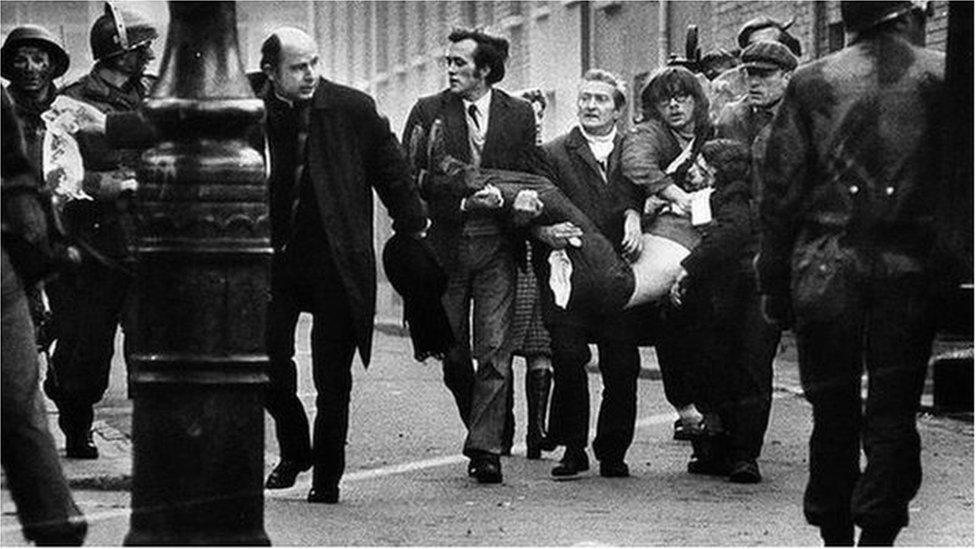Bloody Sunday report submitted to PPS
- Published

The Saville inquiry into Bloody Sunday took 12 years to complete and exonerated those who died
The police have submitted a report to the Public Prosecution Service (PPS) after interviewing former soldiers in their Bloody Sunday investigation.
Thirteen people were shot dead in Londonderry on 30 January 1972 after troops opened fire on a civil rights march.
The Legacy Investigation Branch's Det Ch Insp Ian Harrison said the families have all been informed of the move.
It was welcomed by Kate Nash, whose brother William died on Bloody Sunday.
Analysis by Â鶹ԼÅÄ NI Â鶹ԼÅÄ Affairs Correspondent Vincent Kearney
The fact that police have sent a file to the PPS does not automatically mean they believe some of the former soldiers should face criminal charges.
It could well be that they have concluded there are no grounds for prosecution.
It is up to the director of the PPS to decide, based on the content of the files he has been sent.
For someone to be charged, Barra McGrory will have to be satisfied there is proof of criminal intent.
"I feel like we are knocking on the doors of justice," she said.
"I hope we achieve what we want to achieve. We have been fighting for 45 years.
Kate Nash lost her brother William on Bloody Sunday
"This is not a mantle I intend to leave down. I feel like this is the last step.
The Bloody Sunday investigation was set up as part of the Police Service of Northern Ireland's Legacy Investigation Branch.
It re-investigates unsolved murder cases, dating from the beginning of the Troubles in the late 1960s up to 2004.
The next step will be for the PPS to make a recommendation as to whether charges should be brought over the shootings.
Det Ch Insp Ian Harrison said: "We can confirm a report has now been submitted to the PPS for consideration. The families have been informed of this development."
Clarification 9 April 2019: This article was amended to remove a reference to the death of John Johnston. This reflects the Bloody Sunday Inquiry's finding about Mr Johnston's death several months after he was wounded in Derry on 30 January 1972. The inquiry report states that his death was "not the result of any of the wounds he sustained on Bloody Sunday".
- Published19 August 2016